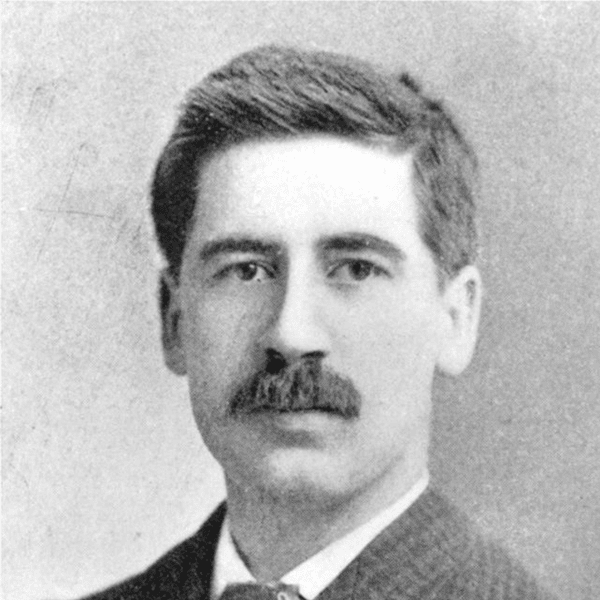Presidential Address
In Memoriam
From the American Historical Review 52:3 (April 1947)
Edward Potts Cheyney (January 17, 1861–February 1, 1947) died at the Crozer Hospital in Chester, Pennsylvania, on Saturday, February 1, 1947, a short time after his eighty-sixth birthday. Well known as an inspiring teacher and a distinguished writer on English history, he had been associated with the University of Pennsylvania since he graduated in 1884 and became an instructor in history. Seven years later he was made professor of history, and in 1929 appointed to the Henry Charles Lea professorship of history, a position he held until his retirement in 1934. Professor Cheyney was one of the last survivors of that remarkable group of elder statesmen under whose guidance the American Historical Association developed into the great professional organization it is today. An active though unobtrusive member of the Association in its formative years, he gradually became one of its outstanding leaders, and in 1923 was elected its President. Meanwhile he had served the Association in many capacities. He was a member of the Council for two years, chairman for nine years of the Committee on the Justin Winsor Prize, and of the Committee on Bibliography of English History from 1909 to 1933. He was an editor of the American Historical Review from 1912 to 1920, serving as its chairman for much of this period of transition during which, in 1915, the Association acquired the Review “by the simple process of voting that it belonged to them.” Even after his term as President, he carried on as chairman of the Committee on the Revolving Fund for the publication of historical monographs. A similar record of service and achievement characterized his work at the university and to a lesser degree at the American Philosophical Society. His history of the university written in connection with the bicentennial celebration is the standard history of the institution. Professor Cheyney’s contribution to the new history and to improved methods of teaching was considerable. With his colleagues James Harvey Robinson and Dana C. Munro he projected Translations and Reprints from the Original Sources of European History, making them available in attractive form and modest price for classroom use. He broke new ground in his selection of original sources from the records of economic, social, and cultural history, witness: English Towns and Guilds; Documents on Feudalism; Social Changes in England in the Sixteenth Century as Reflected in Contemporary Literature, and several others, culminating in his Introduction to the Industrial and Social History of England. During the middle years of his life his interest shifted from fourteenth century England to the sixteenth. In this field he wrote his most ambitious work, The History of England from the Armada to the Death of Queen Elizabeth (2 vols., 1914–28). Filling in a gap between the works of Froude and Gardiner, it firmly established his reputation among English and European historians. European Background of American History (1904) “every American ought to read if he has not.” His textbooks, especially his Short History of England, have been widely used, his ability for clear, lucid writing, coupled with respect for facts and a capacity for generalizations accounting for their successive editions and reprinting. Rigid objectivity in the search for truth and a desire to make the truth prevail characterized both his teaching and his writing. An amateur scientist-geologist, botanist, and lover of the out-of-doors-he early espoused the theory and implications of evolution and applied them to his interpretation of history. History too had its laws, its determinants. In his Law in History and Other Essays (1927) he singles out six: a law of continuity, a law of change, a law of interdependence, a law of democracy, a law of control by free consent, and a law of moral progress. For his students, readers, and many friends no survey of his life would be complete without a reference to the man himself, the kindly, lovable Cheyney whose rugged personality refused to grow old. Long after his retirement he radiated the simplicity and serenity of his nature, his generous kindness, and his warmth of human feelings, so remarkably preserved in the Barie portrait now appropriately hung in the university library.
Bibliography
Readings in English history drawn from the original sources, intended to illustrate A short history of England, by Edward P. Cheyney. Boston, New York [etc.]: Ginn & Company, 1908.
A history of England, from the defeat of the Armada to the death of Elizabeth; with an account of English institutions during the later sixteenth and early seventeenth centuries, by Edward P. Cheyney. 2 vols. New York: Longmans, 1914-26.
A short history of England, by Edward P. Cheyney. Rev. ed. Boston, New York: Ginn and Company, 1918.
An introduction to the industrial and social history of England, by Edward P. Cheyney. Rev. ed. New York: Macmillan, 1920; Reprint, New York, AMS Press, 1969.
Modern English reform, from individualism to socialism; a course of Lowell Lectures, by Edward P. Cheyney. Philadelphia: University of Pennsylvania Press; London, H. Milford, Oxford University Press, 1931.
The dawn of a new era, 1250-1453, by Edward P. Cheyney. New York, London, Harper & Brothers, 1936.
Freedom of inquiry and expression. Edited by Edward P. Cheyney. Philadelphia: American Academy of Political and Social Science, 1938.
European background of American history, 1300-1600. New York: Collier Books, 1961.
